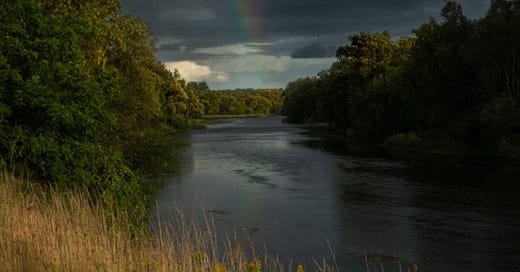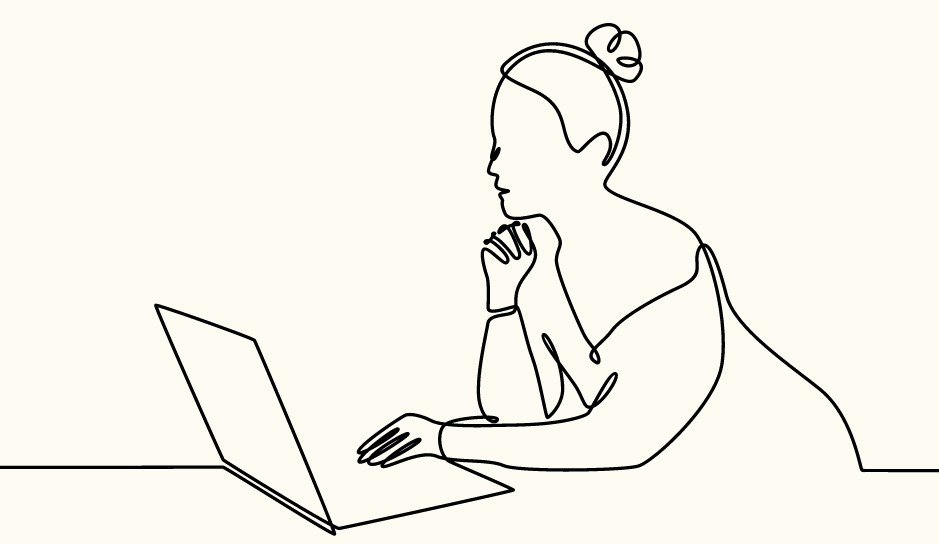Summer is here and the year is half over. Let’s see… what I have not accomplished? My book. 😭
In all seriousness, I think I’ve gotten better at focusing where my attention goes. It’s a choice—I can fixate on feeling hopeless about not publishing my book anytime soon or I can focus on all the discoveries I’ve made about myself while writing it.
I realized I was searching for the silver lining in not only writing my book, but whenever I felt like I wasted my time on a project or in moments when I wasn’t being productive.
Now that it’s June, I thought it would be a good time to take note of all of these activities and little accomplishments and give it some recognition. Today’s newsletter is about recognizing all of the wonderful things that have happened (and biggest takeaways) since I began writing my manuscript.
It’s about the classes I’ve taken, the podcasts I’ve listened to, and all of the cool people and amazing writers I’ve met along the way.
Memoir writing classes
June marks the final month in a class I started in January—Write Your Memoir in 6 Months. The class is led by the owner of She Writes Press, Brooke Warner, and the founder of the National Association of Memoir Writers, Linda Joy Myers.
The class is meant to help you write your memoir by turning in 2,500 words every other week for class. Then, Brooke (or Linda Joy, depending on which teacher you are assigned) gives me feedback and edits directly in the Word Doc.
This class was critical to me because it helped me realized my original manuscript wasn’t going to cut it. I kept asking, “What is this story even about? (Not sure.) Would I want to read it? (No.)”
I decided to pivot and tell a different story, a more compelling one. Brooke agreed with my new direction too.
In case you’re wondering if a lecture-based class with personal feedback is right for you, here are pros and cons.
Pros of a lecture-led class
The feedback from Brooke was insightful and pushed me to think more deeply about my story. I learned how to hold the tension in scenes, to give more thought to my prose when I talk about emotions—something that is not easy!
This class forced me to write and turn in 2,500 words every other week. There were so many weeks when I really didn’t feel like doing it, but somehow, I never missed a deadline.
Cons of a lecture-led class
There were no in-depth discussions because the class was too large. However, students were able to ask questions as the lecture is happening or put them in the comments for the teachers to answer.
Watching slides and listening to a lecture on Zoom felt a bit dull and it was difficult to pay attention.
The only other class I can compare Write Your Memoir in 6 Months to is a memoir class I took last year with Wendy Dale. I wrote about it previously.
Wendy’s class was smaller (only six students) and was discussion-based. We’d share five pages of our manuscript before class and then take about 20 to 30 minutes to talk about each person’s work.
My takeaway from Brooke’s class and Wendy’s is that I prefer a discussion-led class. It’s why I’m excited for the next one—led by Allison Langer at Writing Class Radio. I also love that these classes force me to write and hold me accountable.
It’s another six-month memoir class and I imagine it will be intense because the class meets weekly.
With this class, I am hoping to have my story and manuscript in a better place by December.
Podcasts: Unsubscribing and listening to new ones
This year, I’ve learned a lot about publishing (self-publish vs traditional vs hybrid) through listening to podcasts. These shows (The Creative Penn, The Shit No One Tells You About Writing, Qwerty, The Indy Author Podcast, The Book Marketing Podcast) focus on marketing your book. I have the basics down regarding:
What it takes to get an agent
Work with a traditional punisher
Self-publish or go hybrid
Slowly, over the course of a few months, I unsubscribed from all of the podcasts about publishing because I am clearly not at the publishing stage. I didn’t want to overwhelm my brain any more than it already was.
But alas, I can’t stay away from podcasts, so rather than defaulting to the news or other junk, I returned to podcasts that tell a great story. Because I’m interested in creating my own podcasts, I now listen more intentionally with a podcast-creator’s ear. Stuff like:
The script and how it’s written
The questions from the host (if it’s an interview-based show)
How it’s all pieced together to tell an emotionally-charged story
The background music and sound effects and how they play into my emotions
Recent podcasts with stories I could not stop listening to:
Violation—the story of Jacob Wideman, who has been in prison for more than 30 years for killing someone when he was 16. The podcast reveals why the U.S. parole system is a black box and, in my opinion, totally f*cked up.
According to Need—an award-winning podcast about homelessness in the Bay Area, a huge problem I am familiar with because I used to live there. It also helps listeners understand why the system is so convoluted and isn’t set up to actually help people.
My all-time favorites:
This American Life
Fresh Air
Snap Judgement
Sound School Podcast
Love Letters
Twenty Thousand Hertz
A writing community
When I started writing my memoir, I knew I needed to surround myself with like-minded writers. I don’t like writing alone. Does anyone?
I wanted the support and confidence to keep going. Today, I am in a handful of groups and I have an accountability partner too.
Women in Publishing: This is a group that was started as a result of the last Women in Publishing conference. We meet once a month to talk about where we are in our book-publishing process. If anything, it’s inspiring to hear these women talk about agents, book covers, and when their books are hitting the stores. Oo-la-la!
Accountability partner: I meet with this person (who I met through Write Your Memoir in 6 Months) once or twice a month to go over stuff like how motivated or unmotivated we are about writing or about the latest roadblocks. We also swap chapters and give each other feedback.
Writing Class Radio’s First Draft: These are classes I pay for, and there’s something so motivating about writing in real-time with other people and listening to their stories. It’s mostly the same faces each week and through their personal essays, I feel like I know some of their intimate secrets and personal triumphs even though I’ve never talked to them outside of class. It’s this part of writing that I have learned to appreciate so much. It’s such a privilege.
Substack: In having subscribers of my own and being a subscriber to so many impressive Substack publications, I’ve connected with writers who are doing the exact same thing as me. I regularly join Substack’s Office Hours and post from time to time on Notes, which is Substack’s version of Twitter. It’s delightful to see what other people are writing about and what makes them tick.
My biggest takeaway from growing connection to other writers is that I want it to be a permanent part of my writing life. I knew it was going to be important when I first started my book, but I didn’t know just how much I’d come to rely on a community to learn from, share my experiences with, and feel inspired by.
What silver linings have you discovered this year?
More reads…
When I feel like giving up
The other day I saw a Substack newsletter from Grant Faulkner about quitting and that sometimes, giving up is okay. It spoke to me because there are moments when I feel like giving up on my memoir. At this phase, just the mere thought of publishing feels impossible. But I know I’m not alone and I’m certain this is something every writer experiences.
Neglecting my book is actually making me want to write
In a previous Substack newsletter, I wrote about giving myself some grace when I feel like giving up on writing my memoir. I was just feeling kind of blah. I knew that forcing myself to keep writing when I wasn’t feeling it would make me resentful and stressed out.
3 things that changed my writing forever
I actually started writing my memoir back in 2017. In a Google doc, I wrote about moments in my life that were funny, dramatic, and meaningful. I included the “a-has” and events that slowly changed how I thought about myself and the world around me.








My book is currently on hold and I'm nowhere near done but I've discovered the joy in slow process of writing and the payoffs of being flexible and making changes according to the different seasons of my life.
Writing is slow, writing good is really hard but it's worth it.
It was nice reading about your wins so far, you're doing great!